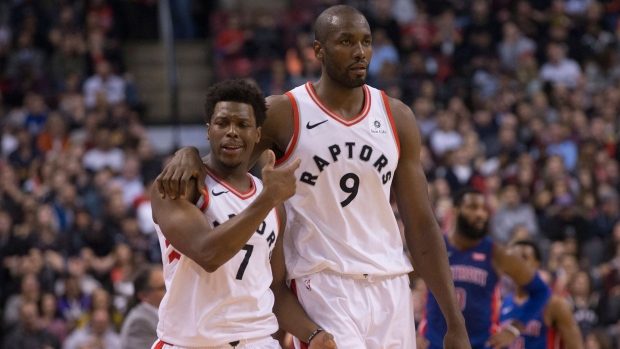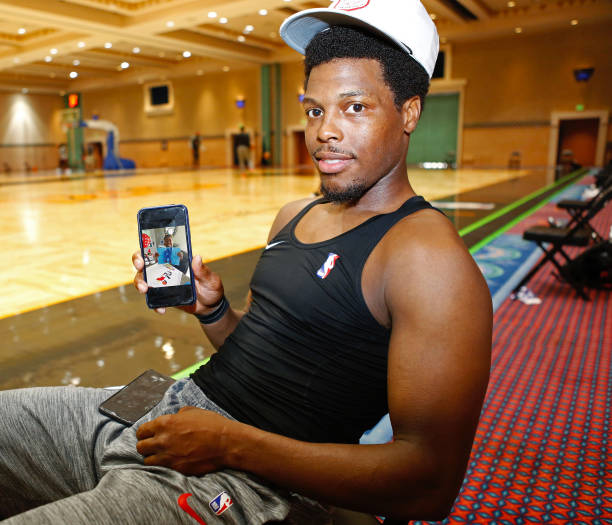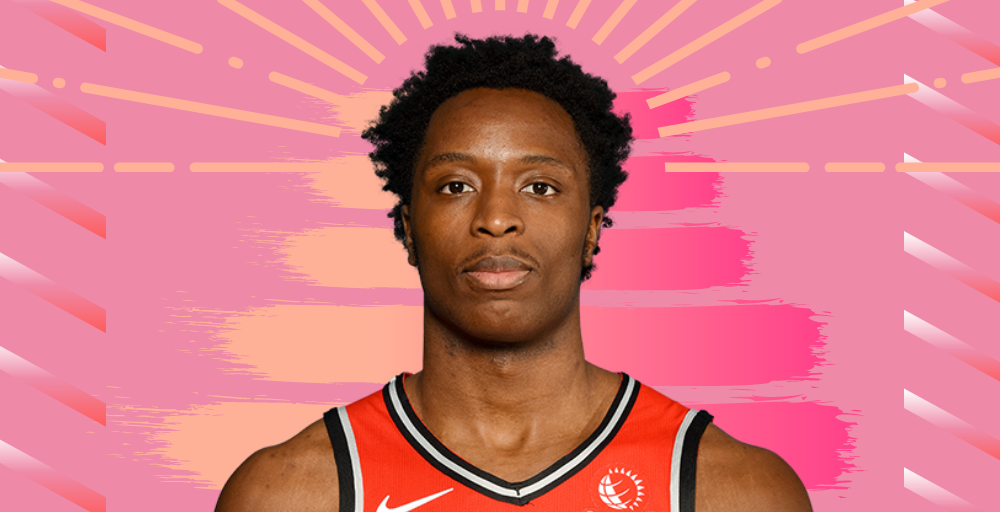There are benches and there are benches. Two years ago the Raptors boasted the best bench in the NBA. Fred VanVleet, Delon Wright, CJ Miles, Pascal Siakam, and Jakob Poeltl were better than good. The net rating of 18.7 was the second-best in the league among groups that played 300 minutes or more. In the playoffs, that same unit boasted a net rating of 18.9, albeit in only 25 minutes due to an injury to VanVleet.
It is rare that benches play so well or so often, with a frequency of 20.0 percent. Per pbp stats, Toronto used zero starters more often than anyone else in the 2017-18 season in the regular season. The season-leaders in frequency since 2017-18 were the Los Angeles Clippers (16.4 percent) in 2018-19 and the New York Knicks this year (14.1 percent). Neither saw remotely as much success as Toronto’s zero-starter minutes in 2017-18.
Those days of bench domination could sit in Toronto’s past. Where does this year’s Raptors’ bench stand?
This year, the Raptors used zero-starter lineups only 3.9 percent of the time, 19th-most in the league. Per Cleaning the Glass, Toronto used lineups without any of Kyle Lowry, VanVleet, OG Anunoby, Siakam, and Marc Gasol for only 168 possessions this year (2.7 percent frequency), and they had an outrageous 98th percentile defense and 3rd percentile offense. A hilariously skewed one-sidedness. And also all adding up to a modest points per 100 possession differential of negative-0.6. So Toronto’s zero-starter units were, in the big picture, mediocre, if earth-shatteringly dominant on defense.
Of course, if you add in only one starter, the group suddenly became much more effective. With the only starter on the floor as Lowry (differential of plus-8.1), VanVleet (plus-7.2), or Gasol (plus-33.3!), the Raptors improved. Interestingly, the Raptors were not fantastic with only Siakam on the floor alongside four bench players. But in general, the Raptors were terrific in those transition groups of some starters and some bench players. They actually had the highest net rating in the league with either one starter or three starters on the court.
Yet the talk out of the bubble recently is that the all-bench group is giving the starters a run for their money. Norman Powell and Rondae Hollis-Jefferson spoke with media about getting under starters’ skin, raising the level of intensity, and trying to win every minute on the practice court.
Powell and Hollis-Jefferson are integral members of Toronto’s bench. The presence of either drastically changes the way the team plays. When Powell was on the court, Toronto’s 3-point accuracy improved by 2.4 percent and accuracy at the rim improved by 3.9 percent. Those are sizeable leaps. At times, Powell played like a superstar. Powell is a shooting terror, flying off screens, and seeking to create his own shot as a secondary or tertiary option towards the end of the clock. He’s become unstoppable in transition. When Hollis-Jefferson played center — and you should sit down for this statistic, it probably deserves its own article — 19.6 percent of opponents’ possessions ended in turnovers. One out of every five. That’s crazy. Both Powell and Hollis-Jefferson helped define the Raptors’ style, at times.
This may be burying the most important aspect of Toronto’s bench, but Serge Ibaka is also part of the group. (Not always, sometimes he will start alongside Gasol, particularly if the Raptors face the Philadelphia 76ers.) For real stretches of the season, Ibaka kept the Raptors afloat. Offensively, he is Toronto’s best scoring threat as a roller, and he has also been a wonderfully consistent standstill shooter, hitting 40.1 percent of his triples this year. He’s become a plus passer for his position, and he’s a good offensive rebounder and cutter. On the other end, he remains a great help-side shot-blocker, post defender, and defensive rebounder. Ibaka’s on-off splits may be poor, but much of that is because of Gasol’s unique strengths; rest assured, Ibaka is one of the best bench bigs in the league.
Terence Davis and Pat McCaw are fighting for the ninth bench spot, and though Nurse favours McCaw, Davis has been an important part of a number of Toronto’s winningest lineups. (By the way, when Powell, Hollis-Jefferson, Ibaka, Davis, and McCaw all played together, Toronto scored 57 points and allowed 47 in 51 non-garbage time possessions. Pretty, pretty good, if the smallest of sample sizes.) Plus, there’s Chris Boucher, who was already a highlight reel and allegedly added 15 pounds during quarantine, which could solve his greatest weakness of allowing centers push him around.
For all that talent, the Raptors probably won’t give an all-bench group any run. It’s not a look they use any more. Since Nick Nurse took over the team, the Raptors have given all five starters more time together than any other team in the league. So even if the Raptors could find a new bench mob, it’s unlikely that it’ll happen.
Instead, it’s more likely that the bench will fill in for some important moments while supporting one or two starters still in the game. Last year the Raptors won the championship, yes, but there were some bumps and bruises along the way. Specifically, the Raptors struggled when Kawhi Leonard wasn’t on the floor. They were terrific in the regular season without Leonard, but that ended when Leonard sat on the bench. The offense was, according to basketball reference, 18.7 points worse per 100 possessions without Leonard. The Raptors outscored playoff opponents by 156 with Leonard on the court and were outscored by 25 with him on the bench. Throw in a little good bench magic, perhaps grow the lead rather than let it float away, and the Raptors would have blown out opponents. Leonard wouldn’t have even had an opportunity to hit The Shot because the Raptors wouldn’t have needed seven games against the Sixers.
It may be a strange argument, particularly because this year’s bench sports so many of the same players as last year, but Toronto has a much improved bench this year. Ibaka is enjoying a better, more consistent season. Powell evolved, then evolved again, and if he maintains his level of play from before suspension of the season, he is several tiers better now than he was last year. Apart from a few games again Milwaukee and Orlando, he was a relative non-factor last playoffs. These playoffs, he could lead the team in scoring in a handful of games. Context players like Davis, Hollis-Jefferson, and even Matt Thomas will find roles from time to time. McCaw is better this year than last. VanVleet may no longer be a bench player, but like Lowry, he’ll have plenty of run these playoffs with bench players alongside him.
And in those minutes, With a few starters on the floor, the Raptors could run opponents off the court. And it didn’t really matter who those starters were. That’s a huge advantage, and it speaks highly of the players that Toronto has coming off the pine.
So where does that leave the Raptors and their bench? Well, they aren’t the bench mob of yore. Toronto’s best lineup will not be a bench group, as in 2017-18. But neither should Toronto’s offense fall off by almost 20 points per 100 possessions when the lead offensive player leaves the game. There are a few certainties. Davis will have a playoff moment. Powell and Ibaka will have several. The bench will probably be a plus for Toronto. And the Raptors won a championship last year without that being the case in the playoffs. If Toronto’s bench can win its minutes this time around, that would go a long way towards ameliorating Leonard’s departure.




